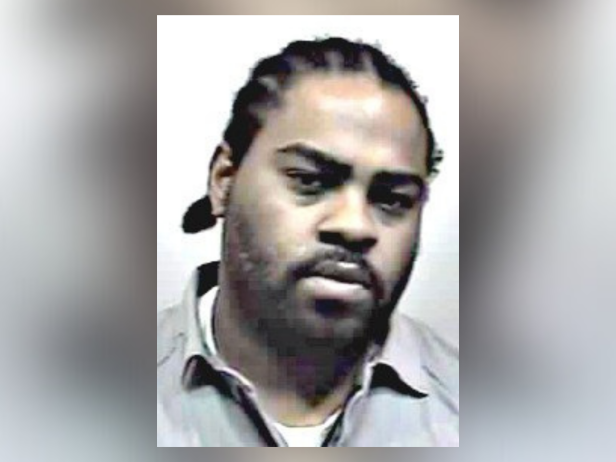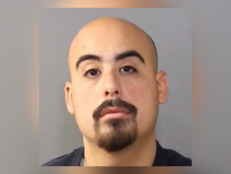Man Accused Of Killing Arpana Jinaga Freed After He’s Held 9 Years With No Conviction
Emanuel Fair contends in a lawsuit that authorities “ignored and failed to gather evidence that did not align with their theory of the case.”

King County Superior Court
This is the second article in a two-part story. Read part one about Arpana Jinaga's mysterious murder here.
Indian immigrant and recent college graduate Arpana Jinaga was found brutally murdered in her Washington State apartment after co-hosting a Halloween costume party at her complex the evening of Oct. 31, 2008.
Following an investigation, police in Redmond believed they had caught the 24-year-old software engineer’s killer and they took Emanuel Fair into custody in late October 2010. Nearly nine years and two trials would pass before a jury found reasonable doubt in the case and acquitted Fair of the first-degree murder with sexual motivation charge against him.
“I always knew I was going to get out; I just didn’t think it would take as a long as it took,” Fair, 39, told The Seattle Times earlier this year about being locked up so long without a conviction.
Fair and as many as 50 other residents and their guests were in and out of Jinaga’s apartment and several other units during the Halloween festivities almost 15 years ago. Two days after the party, on Nov. 3, 2008, Jinaga failed to show up for work and she was discovered strangled to death in her bedroom.
There were no witnesses to the murder, and whoever killed her went to great lengths to eliminate possible evidence by using everything from bleach to motor oil to contaminate the crime scene and the victim’s body.
“It was a scene where the suspect or suspects spent a considerable amount of time covering the evidence of crime,” Redmond police Lt. Brian Coats, who led the investigation, once recalled in an interview with The Redmond Reporter.
DNA from two males was eventually recovered from two key pieces of evidence, a motor oil bottle and a piece of duct tape that was used to gag Jinaga.
Police said that while multiple DNA profiles from other tenants and attendees of the party were found inside Jinaga’s apartment, they believed profiles consistent with Fair linked him more directly to the slaying, according to The Redmond Reporter.
Trace amounts of Fair’s DNA was reportedly found on the tape recovered in the apartment, and it was also allegedly mixed with Jinaga’s blood on a red robe later found in a dumpster. A swab police used to check Jinaga’s neck for forensic material also contained a minute amount of his DNA, police said.
The second male’s DNA belonging to Jinaga’s neighbor was recovered from the motor oil bottle, which was found in a bag with the red robe, the same one that investigators believe was part of the victim’s Red Riding Hood costume.
Before Fair became the main focus of the investigation, Coats and other investigators identified Jinaga’s neighbor as a person of interest in the case. According to The Redmond Reporter, phone records show the man, who has not been publicly identified, called the victim at 3 a.m. The call fell within the time range an autopsy determined Jinaga was killed, and the neighbor later claimed to detectives he couldn’t remember making it. The day after the slaying, the man was denied entry into Canada.
Fair, on the other hand, was the guest of a resident at the complex. Investigators who obtained Fair’s phone records learned that between 1:54 a.m. and 4:48 a.m. the night of the party, he made or received 20 calls, according to The Redmond Reporter.
One woman received three missed calls from him around 4:45 a.m. Fair later explained he was asleep at his friend’s house in the building at the likely time of the murder and could have been sleeping on his cell phone and called her by accident. The same woman said one call resulted in a long voicemail that consisted of just the sound of movement.
The case was anything but cut and dry, and an eyewitness — the last person to see Jinaga alive — further divulged information that confused the already complicated case even more. Rolling Stone reported that the resident recalled seeing who they described as a tall olive-skinned man speaking with Jinaga in her doorway around 3 a.m. on Nov. 1. Fair is Black.
In a 2020 interview, Lt. Coats said he was looking at photos belonging to one of the Halloween party attendees when he first noticed Fair because he was “the only African American male at the party” and appeared to be an “outsider,” according to Rolling Stone.
After discovering Fair had a criminal history, his lawyers later claimed, investigators allegedly cherry-picked DNA evidence, made an immunity deal with Jinaga’s neighbor and charged Fair in connection with the case.
Fair was taken into custody and held for over nine years in Seattle’s King County without a conviction. He adamantly denied he was guilty of Jinaga’s murder, but he couldn’t be released to await trial since he was unable to put up the seven-figure bond.
Finally, in 2017, the case went to trial, but the proceedings ended with a hung jury because of a lone holdout who thought Fair was guilty. According to Rolling Stone, the juror later admitted he viewed the defendant with “tattoos on his hands” as a “thug.”
On June 11, 2019, the jury in Fair’s second trial acquitted him after deciding law enforcement and prosecutors’ case wasn’t strong enough for a murder conviction.
“After nine years of fighting, Fair has the freedom he deserves,” the exonerated man’s defense attorney, Ben Goldsmith, said after the verdict was delivered. “Emanuel has steadfastly maintained his innocence throughout this case and he, his family and friends are greatly relieved that justice was served by his acquittal.”
Jurors said one of the many reasons they reached the not guilty verdict was because much of the evidence against Fair came from a dumpster that was initially not secured and then not emptied of its contents until two days after the slaying, creating the possibility evidence could have been contaminated.
Jurors also questioned why police never fully pursued the possibility the neighbor who was granted immunity could have killed Jinaga.
Fair recently filed lawsuits against multiple defendants, including King County, the city of Redmond and Redmond Police Capt. Brian, who has denied the allegations against him.
In court documents obtained by Rolling Stone, Fair through his lawyers contends detectives working the case “ignored and failed to gather evidence that did not align with their theory of the case” — including in connection with at least six other suspects who could be possible culprits — and there was a huge divide between how they treated Fair and white suspects, to the point “the treatment can only be viewed as racial discrimination.”
The suit also points out the numerous errors detectives made, including not changing gloves while collecting DNA and breaching protocol when it came to securing the crime scene, among others.
As for investigators and prosecutors’ claims that DNA largely indicated Fair was allegedly the probable killer? Citing Fair’s lawsuit, the Rolling Stone article states that DNA from another resident at Jinaga’s apartment complex at the time “was found on the shoelace believed to have strangled Jinaga; she’d been a part of a local motorcycle group, and police records show that two members of the group had a history of sexual crimes, and one had been sexually harassing her.”
The article also points out that “police also found DNA from a third biker, who [Jinaga had] been sleeping with, on her costume, and on the sheet that was draped over her body.”
Despite all the seemingly unexplored leads, Fair recently told the publication, “There’s no resolution for this case.” Pursuing the lawsuit, he explained, “is the closest thing to justice I can get.”









